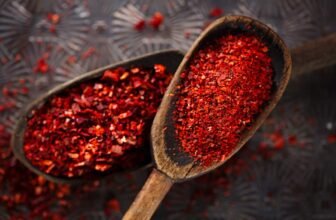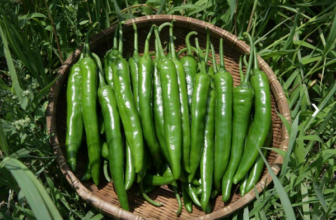
Table of Contents
A. What is Naga Viper Pepper ?
The Naga Chili Pepper is like a super spicy superhero of chili peppers. It was created by mixing the genes of three super-hot peppers, including the Naga Morich. This chili is so incredibly hot that you have to be really careful when handling it. It’s like the king of spicy peppers!
B. The Scoville Scale: Measuring Heat
The Scoville Scale is the universal measurement for spiciness in foods, particularly peppers. Originating from Wilbur Scoville’s 1912 method of heat evaluation, this scale ranges from zero to millions of Scoville Heat Units (SHU). The Naga Viper comes in at over 1,349,000 SHU, making it one of the world’s hottest peppers.
Origin and History
A. Discovery in the UK
In a surprising twist, the Viper Chili was actually grown in the United Kingdom by a chili farmer named Gerald Fowler. This particular pepper breaks all the rules and shows that you can grow super-hot peppers in places you wouldn’t expect, not just in the usual hot pepper spots!
B. Evolution from the Naga Moriche Pepper
The Hot Snake Pepper is like a spicy cousin of the Naga Morich pepper, which comes from Bangladesh and Northeast India and is super-duper hot! People made the Naga Viper by mixing and matching different peppers with special techniques to make it extra spicy. It’s like a spicy science experiment!
C. Indigenous Roots in India
Even though the Hot Snake Pepper was made in the UK, it has family roots in India, like chili with a passport! This shows how Indian chili peppers have a significant impact all around the world.
III. Cultivation and Growth
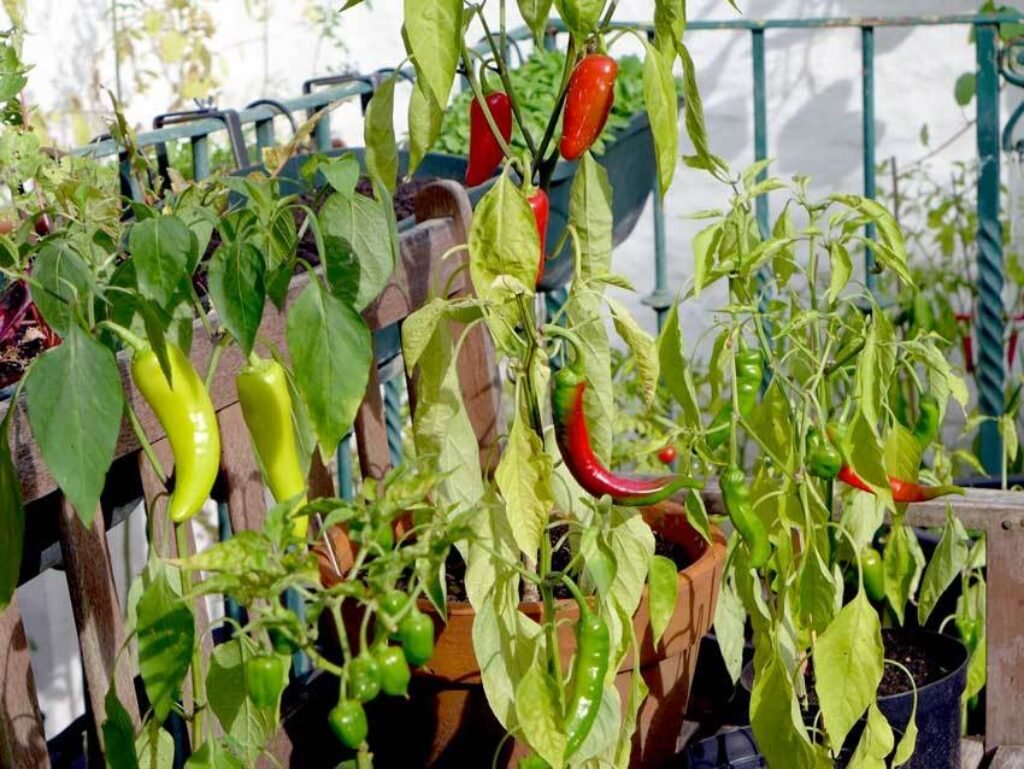
A. Ideal Growing Conditions
Naga Vipers thrive in warm, humid conditions. They need well-drained soil and plenty of sunlight to flourish.
B. Nurturing the Naga Viper Plant
To make the Naga Jolokia Viper grow big and super spicy, you should water it often and give it exceptional food called high-phosphorus fertilizers. The best part is bugs don’t bother this pepper because it’s so spicy, and they don’t like spicy food!
C. Harvesting Techniques
When it’s time to pick the peppers, wait until they’re a bright, fiery red. And remember, it’s a good idea to wear gloves to keep your hands safe from the spicy stuff inside the peppers.
IV. The Heat Factor
A. Let’s talk about capsaicin, the unique stuff that makes chilli peppers spicy. When you eat spicy peppers, capsaicin talks to your mouth and tells your brain, “Hey, it’s hot in here!” more about red chili.
B. Naga Viper’s Scorching Scoville Rating
With an SHU of over 1.3 million, the Naga Viper is not to be taken lightly. It outranks many other super-hot peppers but still falls short of the current record-holder, the Carolina Reaper.
C. Compared to Other Super-Hot Peppers
Compared to the likes of the Bhut Jolokia or the Trinidad Scorpion, the Naga Viper holds its own. However, newer strains like the Carolina Reaper have since eclipsed its record.
V. Culinary Uses

A. Cooking with Caution
While the Naga Viper can elevate the spice levels of any dish, caution is advised. Even a tiny sliver can render a dish inedible for those unaccustomed to extreme heat.
B. Naga Viper in Traditional Dishes
It is often used in curries and hot sauces, respecting its Indian lineage. However, it’s advisable to start with a fraction of a pepper and adjust to taste.
C. Creative Culinary Adventures
From spicy ice cream to hot cocktails, the Naga Viper has been experimented with in an array of unconventional dishes. Its unique fruity flavor adds a distinct nuance before the heat kicks in.
VI. Health Benefits and Risks
A. Potential Health Benefits
Capsaicin, apart from being a potent heat agent, also has potential health benefits. It’s known for its anti-inflammatory properties and may assist in boosting metabolism.
B. Handling the Heat: Health Risks
Too much capsaicin can cause digestive distress. Always consult your doctor before incorporating high levels of capsaicin into your diet, especially if you have gastrointestinal issues.
C. Dos and Don’ts for Consumption
Always wash your hands after handling, and never touch your face or eyes. Store away from children and pets.
VII. The Quest for the Hottest Pepper
A. Guinness World Records
The Naga Viper briefly held the Guinness World Record for the world’s hottest pepper in 2011. Though dethroned, it remains a legend in the chilli community.
B. Naga Viper vs. Carolina Reaper
While it has been surpassed by the Carolina Reaper, which measures over 2.2 million SHU, the Naga Viper remains a respected competitor in the race for the world’s hottest pepper.
C. Cultivating Competitive Peppers
The desire to break records has led to extensive cross-breeding, creating even more lethal peppers. The cultivation of these titans is often a guarded secret.
VIII. Growing Naga Jolokia Viper at Home
A. Setting Up Your Garden
Select a sunlit location and opt for soil with good drainage. Consider a greenhouse if you’re in a cooler climate.
B. Care and Maintenance
Regular watering and feeding are crucial. Furthermore, refrain from excessive watering to prevent the risk of root rot.
C. Harvesting Tips
When the peppers are red and firm to the touch, they’re ready for harvest. Always use gloves and handle with care.

IX. The Naga Jolokia Viper Community
A. Chili Enthusiast Forums
Online platforms like Reddit and specialized forums offer a treasure trove of information for chilli lovers, from growing tips to recipe ideas.
B. Annual Pepper Festivals
Events like the New Mexico Chile Festival celebrate the culture and culinary significance of super-hot peppers, including the Naga Viper.
C. Online Resources
Blogs, YouTube channels, and social media pages dedicated to chilli peppers serve as invaluable resources for both novices and experts.
X. Culinary Innovations
A. Naga Viper Hot Sauces
Brands like ‘Blair’s Death Sauce’ incorporate Naga Viper into their recipes, delivering a bottle full of liquid fire.
B. Spicy Snack Products
From spicy chips to salsas, the Naga Viper has found its way into mainstream snack foods.
C. Naga Viper in Beverages
Believe it or not, this fiery pepper has been incorporated into spicy cocktails and even beers, adding a new dimension to the drinking experience.
XI. Naga Viper in Pop Culture
A. Celebrity Challenges
YouTube challenges featuring celebrities attempting to consume the Naga Viper have gone viral, much to the delight (or horror) of their fans.
B. Naga Viper in Movies and TV Shows
While not yet a Hollywood star, the Naga Viper has made appearances in food documentaries and travel shows.
C. Songs and References
Though not as celebrated as its cousin, the jalapeño, the Naga Viper, is making its way into pop songs and cultural references, solidifying its place in global awareness
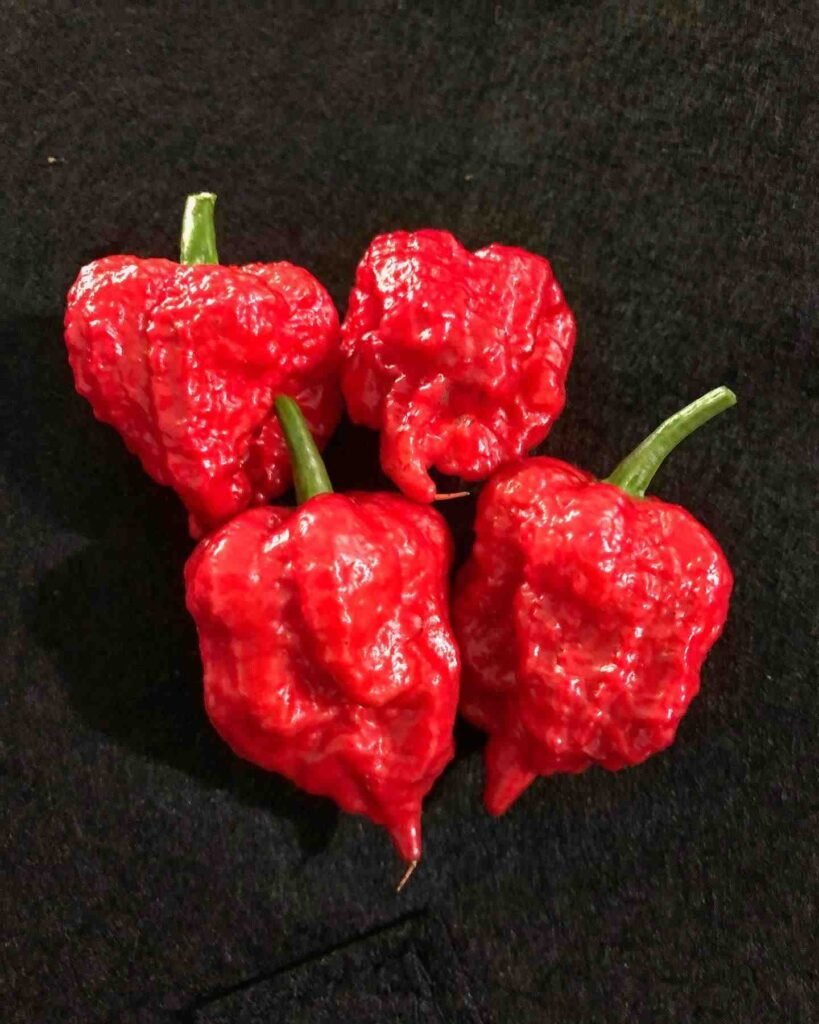
XII. The Science Behind the Heat
A. Capsaicin Chemistry
Capsaicin molecules bind to receptors in the mouth, creating the sensation of heat—a fascinating area of study for food scientists and neurobiologists alike.
B. Impact on Taste Buds
Over time, frequent exposure to capsaicin can actually decrease its perceived heat, an example of sensory adaptation.
C. The Pleasure-Pain Connection
The consumption of hot peppers releases endorphins, explaining why some people are addicted to the burn.
XIII. Naga Jolokia Viper in Traditional Medicine
A. Historical Medicinal Uses
In traditional Indian medicine, super-hot peppers like the Naga Viper have been used to treat ailments like arthritis and digestive issues.
B. Modern Alternative Therapies
Some natural health proponents claim that capsaicin can be used in pain management, though scientific evidence is still limited.
C. Research and Findings
While more research is needed, preliminary studies suggest potential anti-cancer properties, among other health benefits.
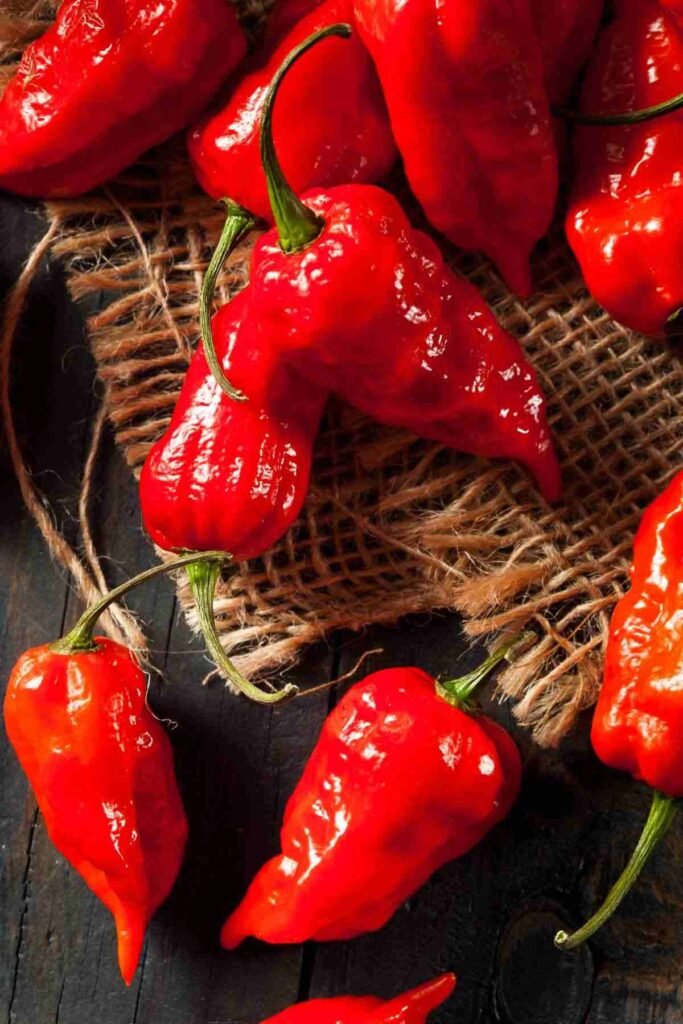
XIV. Naga Jolokia Viper Conservation Efforts
A. Preserving Genetic Diversity
Conservation initiatives aim to preserve the genetic integrity of the Naga Viper amidst the proliferation of hybrid peppers.
B. Sustainable Farming Practices
Farmers are increasingly adopting sustainable methods, like organic farming, to cultivate Naga Jolokia Viper
C. Challenges and Future Prospects
Climate change and commercial pressures pose significant challenges, making conservation efforts even more crucial.
XV. The Global Chili Pepper Craze
A. International Demand
From the US to Japan, the demand for super-hot peppers is a global phenomenon driven by a fascination with extreme flavors and culinary innovation.
B. Export and Trade
India, among other countries, has been a significant exporter, feeding the world’s appetite for spice.
C. Economic Impacts
The rising popularity of super-hot peppers has boosted local economies, particularly in regions known for their spicy cuisine.
XVI. Naga Viper Pepper Myths and Legends
A. Supernatural Beliefs
Some cultures attribute mystical powers to super-hot peppers, believing they can ward off evil spirits.
B. Folklore and Cultural Significance
In India, chilies hold a special place in folklore, often being associated with potency and vitality.
C. Debunking Myths
While entertaining, many myths surrounding the Naga Viper and other super-hot peppers are exactly that—myths.

XVII. Cooking Challenges and Contests
A. Extreme Cooking Competitions
Competitions to create the spiciest dish are increasingly popular, and the Naga Viper often features as a critical ingredient.
B. Naga Viper Challenges
Challenges involve consuming the pepper in its raw form, not for the faint-hearted or the unprepared.
C. Behind-the-Scenes Insights
Some restaurants hold secret competitions, offering prizes to customers who can handle dishes featuring the Naga Viper.
XVIII. Naga Jolokia Viper Art and Merchandise
A. Pepper-Themed Artworks
Artists are creating pepper-themed art, celebrating this red chili in various mediums, from paintings to sculptures.
Merchandise and Collectibles
From t-shirts to keychains, the Naga Viper has inspired a range of merchandise, making great gifts for or with these types of red chili enthusiasts.
Supporting Local Artisans
Buying pepper-themed merchandise often supports local artisans, further enriching the community around this fascinating chili.
XIX. Summary
A. Key Takeaways
The Naga Viper is a pepper of many facets—historical, culinary, and even medicinal. It’s a testament to the enduring human quest for extreme experiences.
B. The Future of Naga Jolokia Viper
As breeding techniques advance and culinary experimentation continues, the Naga Viper will likely remain a prominent figure in the world of super-hot peppers.
C. Parting Thoughts
Whether you’re a seasoned chili enthusiast or a curious newcomer, the Naga Viper offers a world of flavors, experiences, and even a dash of danger. It’s a chili that’s as complex as it is hot, deserving its place in the annals of pepper history.
The Comprehensive Guide to Naga Jolokia Viper: From Origin to Culinary Innovations
FAQs
1: What is the Naga Jolokia Viper?
The Naga Jolokia Viper is an extremely hot chili pepper variety known for its intense spiciness.
How hot is theNaga Jolokia Viper?
TheNaga Jolokia Viper is considered one of the hottest peppers in the world, with an average Scoville Heat Unit rating exceeding 1,300,000 SHU.
3: What does the Naga Jolokia Viper taste like?
The Naga Jolokia Viper has a fruity and slightly sweet flavor, but its extreme heat can make it challenging to taste nuances
4: Where is the Naga Jolokia Viper from?
TheNaga Jolokia Viper was developed in the United Kingdom by chili farmer Gerald Fowler.
5: How can I use Naga Jolokia Viper in cooking?
Naga Jolokia Viper are used sparingly in cooking due to their extreme heat. They can be added to spicy sauces, salsas, and dishes that require intense spiciness. Use them cautiously to avoid overwhelming your dish.
Regenerate



